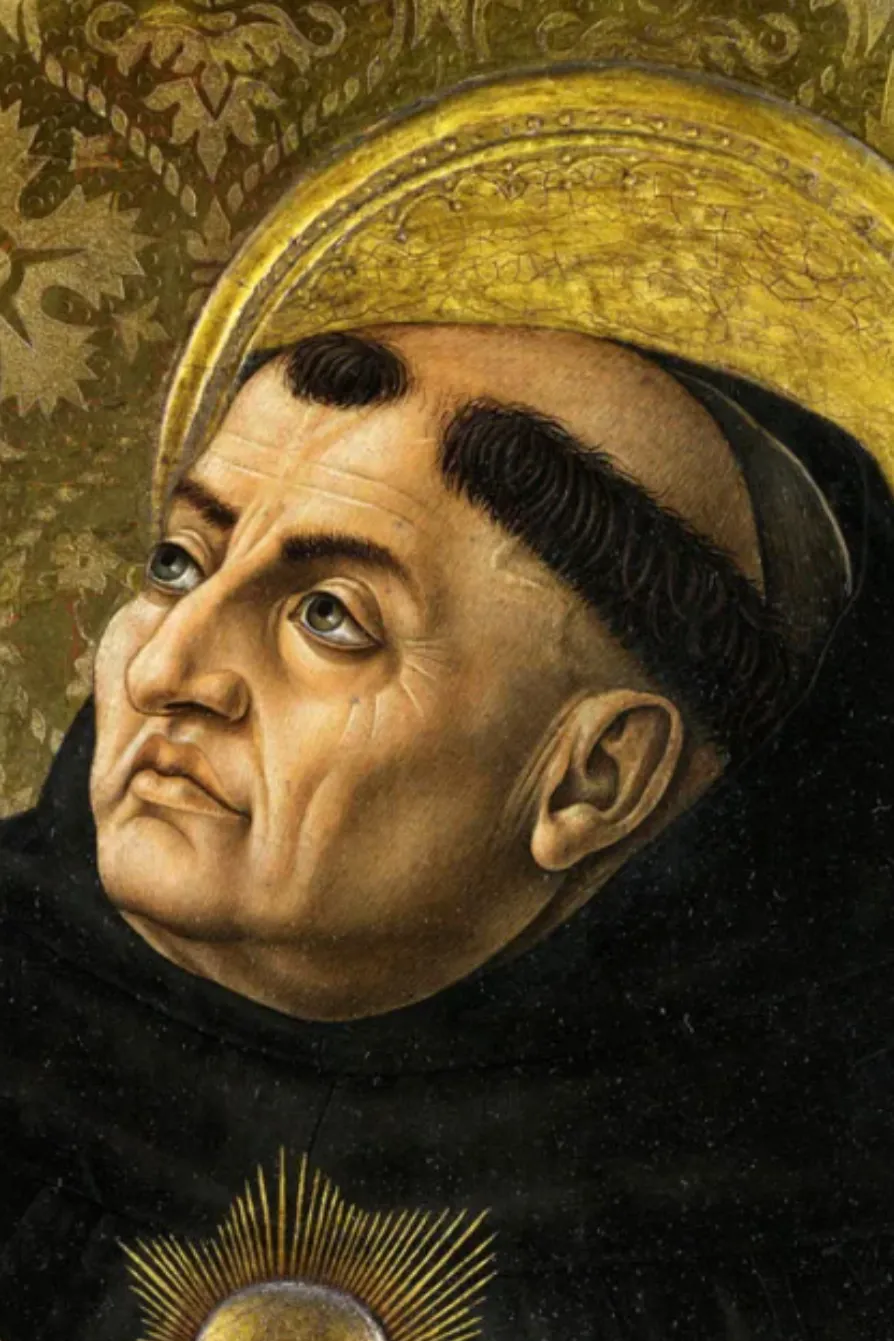Thomas Aquinas
Biography
Thomas Aquinas was a medieval philosopher, theologian, and priest whose work profoundly shaped Christian theology and Western philosophy. Known as Saint Thomas Aquinas after his canonization, he sought to harmonize faith and reason, combining Christian doctrine with the logical rigor of Aristotelian philosophy. His masterpiece, “Summa Theologica,” remains one of the most influential works in the history of theology and philosophy.
Early Life and Education
Thomas Aquinas was born around 1225 in Roccasecca, a small town near Aquino in Italy, into a noble family. As a child, he was quiet, thoughtful, and deeply religious. At the age of five, he was sent to study at the Benedictine monastery of Monte Cassino, where he received a classical education in grammar, logic, and theology.
Later, Aquinas studied at the University of Naples, where he encountered the works of Aristotle and was introduced to the new wave of scholastic thought. Against his family’s wishes, he joined the Dominican Order, choosing a life of religious study and teaching.
His family, hoping he would abandon this decision, even confined him for a year — but Aquinas remained steadfast in his faith and intellectual calling.
Career and Major Works
After completing his studies, Aquinas traveled to Paris and Cologne, where he studied under Albertus Magnus (Albert the Great), one of the leading scholars of the time. Under Albert’s mentorship, he developed his systematic approach to philosophy and theology.
Aquinas became a professor at the University of Paris, where he gained recognition for his clear, logical, and profound thinking. He devoted his life to exploring how human reason and divine revelation could coexist harmoniously.
His most famous work, “Summa Theologica,” written between 1265 and 1274, is a monumental synthesis of theology, philosophy, and ethics. In it, Aquinas addressed fundamental questions about God, morality, and human nature. He argued that reason and faith are not opposed, but rather two paths to the same truth.
Aquinas also developed the “Five Ways” — five rational arguments for the existence of God — based on observation and logic. These include the arguments from motion, causation, contingency, degrees of perfection, and final purpose (teleology).
Other notable works include “Summa Contra Gentiles,” written to explain Christian doctrine to nonbelievers, and numerous commentaries on Aristotle’s writings.
Philosophical and Theological Ideas
Aquinas’ philosophy, known as Thomism, is based on the belief that truth can be discovered through both divine revelation and human reason. He adapted Aristotle’s ideas to Christian theology, emphasizing that the natural world reflects God’s design and can be understood through rational inquiry.
He also contributed significantly to ethics, proposing that human beings achieve happiness by fulfilling their natural purpose — to know and love God. His understanding of natural law laid the groundwork for later developments in moral philosophy, politics, and legal theory.
Later Life and Death
In 1274, while traveling to attend the Second Council of Lyons, Aquinas fell ill and died on March 7, 1274, at the age of 49. He was canonized as a saint in 1323 by Pope John XXII and later declared a Doctor of the Church — one of the highest honors in Catholicism.
Legacy
Thomas Aquinas’s thought became the cornerstone of Catholic philosophy and theology. His integration of reason and faith influenced centuries of scholars and remains central to the teachings of the Catholic Church. The Thomistic tradition continues to inspire philosophers, theologians, and ethicists across the world.
His emphasis on logic, morality, and the harmony between science and spirituality also helped shape the Renaissance, the Enlightenment, and even modern philosophical inquiry.
Conclusion
Thomas Aquinas stands as one of history’s greatest thinkers — a man who bridged the gap between faith and reason. Through his deep intellect and unwavering devotion, he showed that belief in God and the pursuit of knowledge are not enemies, but allies in the search for truth. His legacy endures as a testament to the power of wisdom grounded in both faith and understanding.
